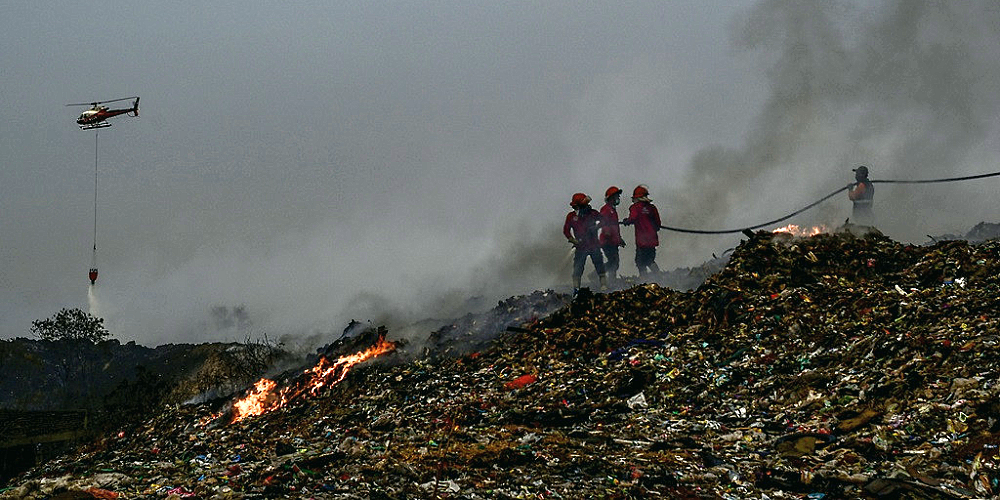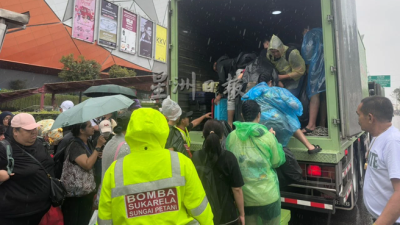
In the past few weeks, passengers arriving at Soekarno-Hatta International Airport in Tangerang, Banten, received an unfriendly welcome in the form of thick smoke during landing.
A blanket of dense smoke billowing slowly in the wind is not a sight anyone wants to see outside the window of their airplane before touchdown.
At one stage, the smoke reduced visibility for pilots and authorities were forced to divert several inbound flights to other airports for safety reasons.
For large commercial aircraft, the minimum visibility for landing is usually around 1,800 meters.
First-time visitors to Jakarta would therefore be forgiven if this sight made them question whether it was a good idea to visit the Indonesian capital city.
It turned out the acrid smoke came from a burning landfill just three kilometers from the airport.
The fire at Rawa Kucing in Tangerang, Banten, took hold on Oct. 20 and burned largely unabated for a few days, fanned by strong winds and fueled by the landfill’s vast pile of flammable waste.
The fire forced more than 150 people residing within 500 meters of the landfill to evacuate to temporary shelters due to serious health concerns.
From the fire incident, we now know how poor waste management can cause not only environmental and health hazards, but also pose security and safety threats.
It is frustrating that fires at landfills occur one after another in this country, despite a ban on the practice.
Thanks to the weather phenomenon El Niño, which has prolonged the dry season by several months, we have seen an increase in landfill fires this year.
In the past few months, a series of landfill fires has raised concern about the poor state of the country’s waste-management system.
The Rawa Kucing fire is one of at least 10 landfill blazes recorded by the National Disaster Mitigation Agency (BNPB) over the past few weeks.
News that a landfill fire has disrupted flights has made us more apprehensive as the waste-management problem has spiraled into an even more dangerous place.
The fire that tore through Rawa Kucing landfill, for example, did not happen out of the blue.
Overcapacity at the landfill had already troubled local residents. In 2020, the poorly managed mountain of garbage there made the headlines for causing sanitary problems.
Local residents complained about a stench causing nausea and vomiting, as well as a plague of flies that invaded their homes.
Experts have warned that the smoke incident reflects poor urban planning in the area, as the local administration failed to anticipate significant population growth and Soekarno-Hatta’s expansion over the last few decades.
Soekarno-Hatta only had one terminal when it started operating in 1985. The airport now has three, and may build another in the future.
Meanwhile, the Rawa Kucing landfill opened in 1992.
It is not that the government is not aware of the problem. The Waste Management Law, which was enacted in 2008, requires all landfills to transform into sanitary facilities, rather than open dump sites.
Since 2013, the Environment and Forestry Ministry has restricted the operation of open dump sites.
However, at least one third of the country’s landfills still use the open-dumping method, according to the ministry, with regional administrations claiming difficulties in following the law.
Citizens can definitely, and have to, contribute to an improvement in waste management through changes of habit, such as reducing and recycling their household waste. But a more substantial undertaking is in the hands of the executive.
A landfill fire that affects aviation should serve as a wake-up call for the central and local governments to take immediate action before a plane accident happens. Let us not wait for that to happen.
ADVERTISEMENT
ADVERTISEMENT








































